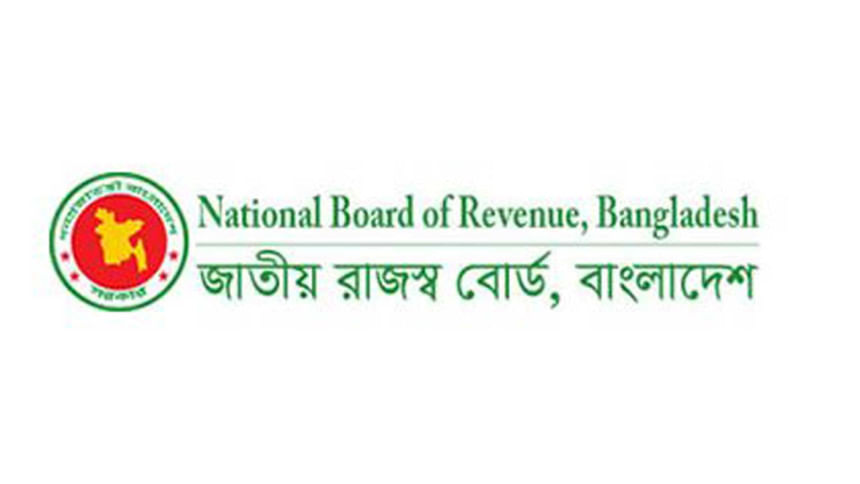NBR to access DPDC database to hunt tax evaders

The National Board of Revenue (NBR) yesterday signed a memorandum of understanding (MoU) with the state-owned Dhaka Power Distribution Company (DPDC) at the former's headquarters to gather information on electric meter holders in the capital as a part of its efforts to hunt down tax-dodgers and expand the tax net.
Under the MoU, the tax administration will get access to the DPDC database and examine tax compliance records of nearly 16 lakh electric meters under the company.
By accessing the system, taxmen will be able to see the flat or house ownership status of a taxpayer and match its actual electricity consumption with the expenditure shown in the tax return.
The move comes as a part of the tax-collector's wider move to gather information on people with taxable income from various government agencies to net more taxpayers in the country, which suffers from one of the lowest tax-GDP ratios in the world.
Bangladesh has roughly 80 lakh registered taxpayers that account for 5 per cent of the country's total population of 16.5 crore.
In case of submission of tax returns, the ratio of submission is around 2 per cent of the total population, although tax officials believe the number of people with the capacity to pay tax is higher.
In his budget speech for the current fiscal year, Finance Minister AHM Mustafa Kamal said the number of middle-class and above population is about 4 crore in the country, but most of them are not paying income tax.
To hunt tax-dodgers and increase income tax collection, the NBR initially started signing agreements with regulatory agencies a couple of years ago.
As such, it has inked deals with regulatory agencies such as the Bangladesh Election Commission and Bangladesh Telecommunication Regulatory Authority.
The NBR also signed MoUs with Bangladesh Road Transport Authority (BRTA), Bangladesh Financial Intelligence Unit (BFIU) and the Department of National Savings to access the database of these public agencies.
Now, the tax authority is working to sign a similar agreement with seven more electricity distribution companies, including Rural Electrification Board and Power Development Board, and state-gas distribution companies and city corporations, including the two in Dhaka city, said a senior NBR official.
Following the agreement with BRTA, the tax authority found a number of tax evaders and new taxpayers, officials say.
At yesterday's event, NBR Chairman Abu Hena Md Rahmatul Muneem said owners of one or more houses and flats in Dhaka city have the ability to file returns but many of them do not.
"Through these initiatives, we will be able to find more taxpayers," he said, adding that the per capita income of the people of Bangladesh has increased in the last ten years.
"The number of people with taxable income has increased but the tax net did not enlarge to that proportion," he said.
One of the biggest challenges in expanding the tax net is the proper identification of taxpayers.
Also known as direct tax, income tax is the second biggest source of revenue collection for the NBR followed by the value added tax paid by consumers. The NBR earlier set a target to make income tax the number one source of revenue, but this goal is yet to materialise.
Pradyut Kumar Sarkar, member for tax audit intelligence and investigation at the NBR, said establishing a tax-friendly culture, and developing a transparent and harassment-free tax administration system would motivate people to pay taxes.
Habibur Rahman, secretary to power division, said it is very opportune for the two organisations to work together.
Bikash Dewan, managing director of DPDC, said mutual co-operation among the agencies will go a long way in increasing the tax net.
"The DPDC will provide the information required by the NBR," he added.
In a presentation, Niaz Morshed, second secretary for international agreement of income tax at the NBR, said the DPDC has 10.21 lakh customers but just 3.65 lakh of them have Taxpayer Identification Numbers.
So, there is a huge potential to collect tax, he added.
"It is definitely a good initiative. It will be easier to screen data and find taxpayers if there is a common interface to the database of various agencies," said Towfiqul Islam Khan, senior research fellow of the Centre for Policy Dialogue.
However, access to the database should be free.
The NBR should also form a specialist team that will be able to analyse big data and use blockchain, he added.

 For all latest news, follow The Daily Star's Google News channel.
For all latest news, follow The Daily Star's Google News channel. 



Comments